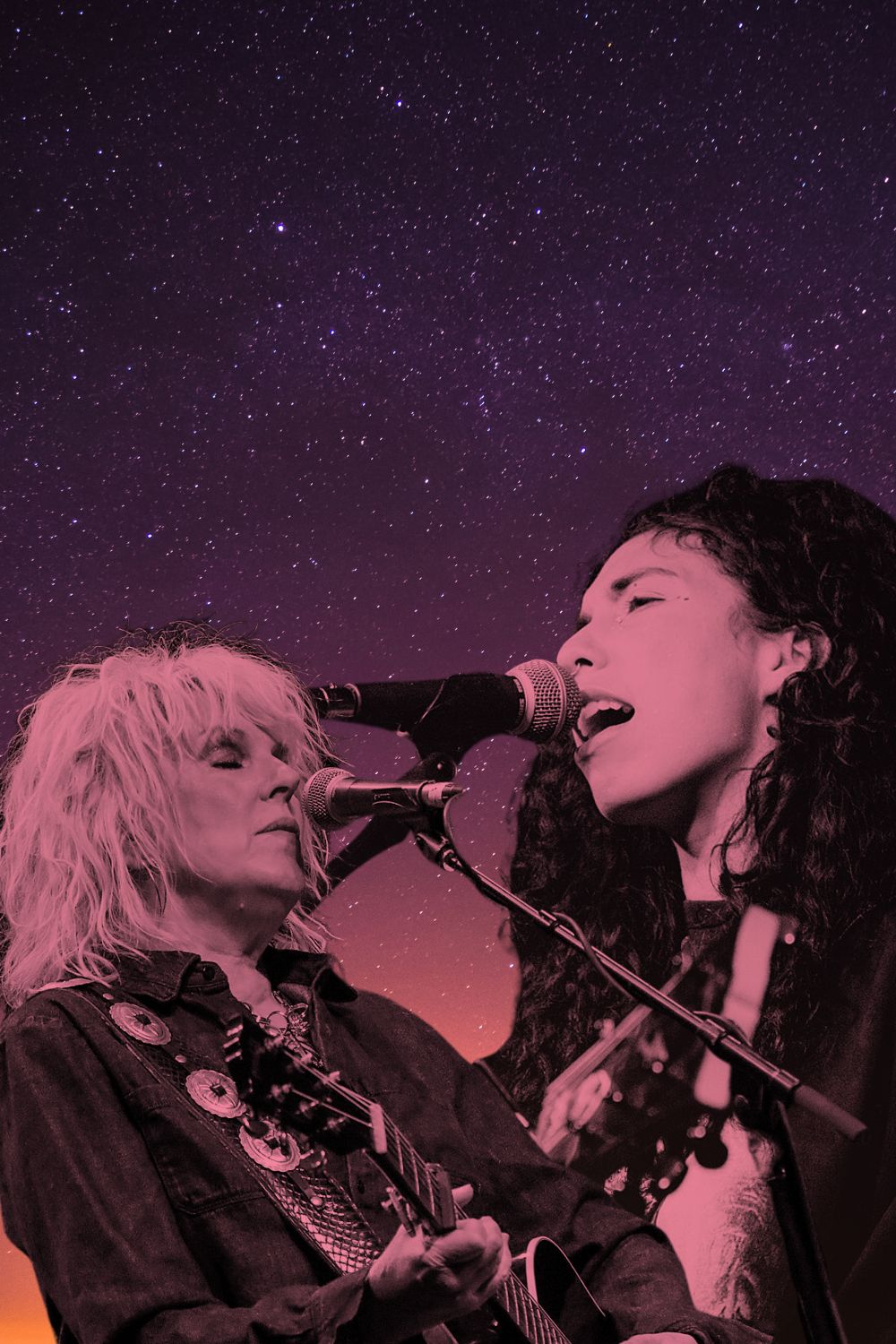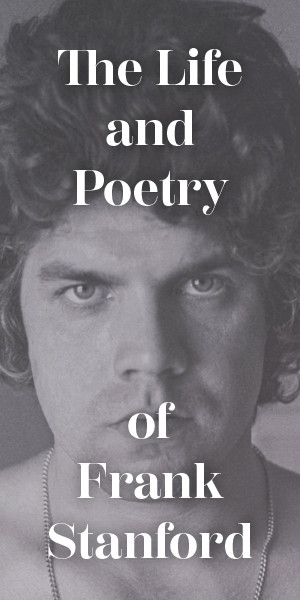A Little Music Might Help
On Lucinda Williams’s witty and devastating “Ventura”
By Indigo De Souza

Lucinda Williams image by Andy Witchger via Wikimedia Commons; Indigo De Souza image by David Lee via Wikimedia Commons; Artistic rendering of image by Oxford American.
This exclusive feature is an online extension of the OA’s annual music issue. Order the Ballads Issue and companion CD here.
I don’t remember what time of year it was. It might have been fall. I was probably about twenty-two. I was taking my friend to the hospital, and we had a while to drive. For some reason I felt called to put on the Lucinda Williams album World Without Tears. The song “Ventura” hit me hard. It’s very heartbreaking, and I relate to it a lot. I remember time feeling really slow, and the song started to make a lot of sense to me.
I was bringing my friend to the hospital for suicidal ideation. That’s something I struggle with too, and so they felt comfortable talking to me. I ended up being their person. I don’t know if this is what the song is about, but when I hear “Ventura” it makes me think of someone who is suicidal—someone who wants to be swallowed up by the world and is hanging on by a thread.
I didn’t know exactly where she was talking about, but “Ventura” is a beautiful-sounding word. The whole song is beautiful; it’s hard to pick a favorite lyric. She says something about pouring a can of soup and stirring it up, but the way she sings it is insane: Stir it up reeaall goood. That blows my mind every time. Those lyrics capture the feeling of not knowing what to do with yourself, but also knowing you have to eat something—and so you go and get whatever is there and try to survive. There’s also a part where she talks about going out onto the street: “Put on my coat / Go out into the street / Get a lump in my throat / And look down at my feet.” I really like that lyric. It feels like someone who hasn’t gone somewhere in a long time but has to go out to get, like, toilet paper.
My mom listened to Lucinda Williams’s World Without Tears a lot when I was young. I remember hearing the whole album as a child, but not understanding the words or knowing what it was about. On that car ride, I started to hear it in a totally new way; it became my own to listen to, rather than my mom’s. It’s funny and devastating and witty. My heart feels heavy about being a person, and I gravitate to Lucinda because of her strength and her grit. I listen to her songs to remind myself of something. I don’t know what it is.
Influence is hard to talk about because it’s a totally nonlinear idea. I hear all different types of music throughout my life and pick up on little things I like or ways that the music takes shape that inspire me, but I feel like my influences are never direct. It’s not like I hear a song and I’m like, “I’m gonna write a song like that,” and then do it. Maybe some people do that, but it’s more abstract for me.
It’s funny, when my manager Madelyn told me about the Ballads Issue, I asked her: “What is a ballad?” She gave me a few examples. I had a flash vision of that drive, and of “Ventura” hitting me really hard. I realized that song is a ballad that I love and go back to often. Madelyn was like, “You know, your song ‘Younger and Dumber’ is a ballad.”
It’s hard to remember exactly what was happening when I wrote “Younger and Dumber,” but I know I had a “come-to” moment about how it was okay to forgive myself for the ways that I’ve been throughout my life. How if you don’t know any better, then you’re doing the best you can. That’s a whole thing that I’m learning—that everyone is doing the best they can with what they have, and when they learn better, then they know better. But until you know better, you don’t.
That’s often been a problem for me, ruminating on past things. That is what inspired the song in the moment—and also feeling heavy about childhood, and the passing of childhood, and about having to dig through the trauma that it provided me. Later, it became a demo, which was actually a little bit faster than it is now. As soon as I demoed it out, I knew it was going to be ballad-sounding. One of the songs I was referencing in my mind was Kacey Musgraves’s “Slow Burn.” I wanted it to be big and strong and slow—but also glossy, like ear candy.
I have lots of new songs, but recording and putting out albums takes forever. Someday there will be more ballads out there. That’s something I want to explore—songs that are more relaxed or more lyric-driven. A lot of songs I’ve put out in the past are so angsty and huge that when I’m performing them, I get exhausted. I want to be less exhausted.
When I wrote “Younger and Dumber,” I was by myself and it just came out. Then, I listened to myself singing it, and I was like, It sounds like it’s always been a song. That’s something I really enjoy about songwriting: writing songs that sound timeless. I’ve been trying to do that more lately. I think that’s partly what a ballad feels like to me—songs that sound timeless and are very to the point. And they have these sections that feel like they’ve always been there. When you hear Lucinda Williams’s “Ventura,” you feel like it’s been around forever and will be around forever. It sounds so natural. Like it already existed before she even wrote it.




